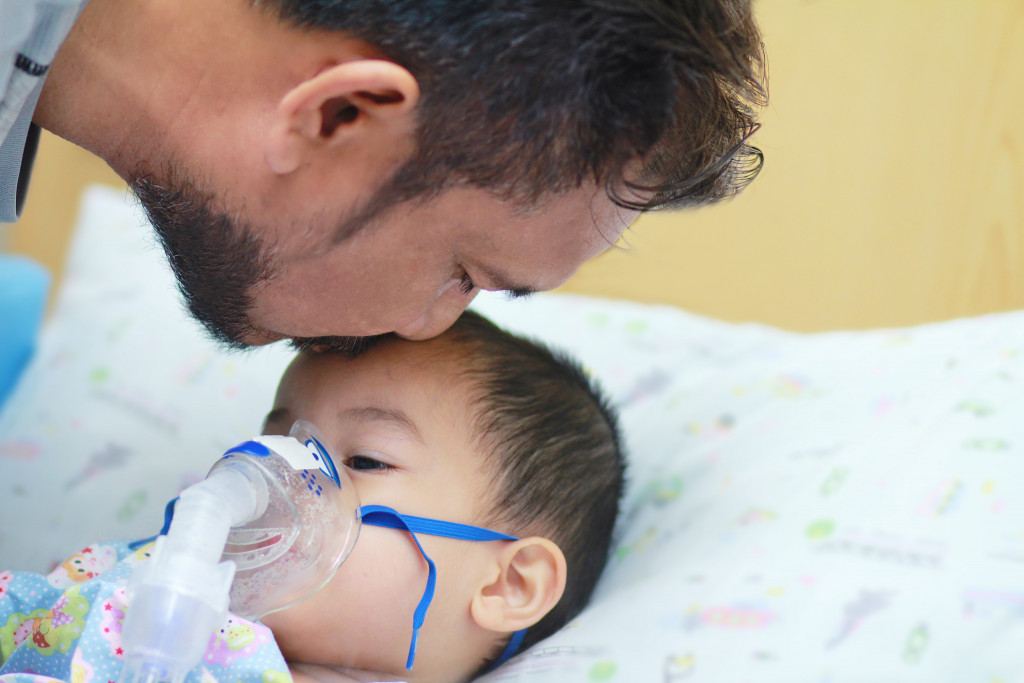Finding out that your child has asthma is heartbreaking. But the symptoms can be controlled, and the sooner you begin treatment, the better. You have to involve the whole family so that everyone knows how to help. They will help you minimize flare-ups because asthma will be part of the family’s daily routine. But when you have techniques in place, it won’t be that difficult.
Here are some of the strategies you can use to care for an asthmatic child:
1. Have a Plan
An asthma action plan is a great start. The plan should include instructions from the child’s doctor detailing what to do every day to keep your child healthy. The step-by-step guide will tell you what to do when the flare-ups occur, how to avoid triggers and when to call a doctor. Asthma attacks can be life-threatening when they are not quickly handled. That is why you need to prepare for every scenario before they happen. You have to learn everything about asthma; otherwise, the plan will not be effective.
You have to understand the treatments and medication available, common triggers, and when the attacks are likely to appear. There are so many things your child will need to stay away from. These days Covid-19 is also a real threat. People with uncontrolled or moderate-to-severe asthma are more likely to be hospitalized because of the virus.
That is why you need to find a COVID-19 testing center to ensure that the whole family gets tested regularly, especially your asthmatic child. The yearly flu vaccine is also highly recommended.
2. Learn About the Asthma Medication
Most kids with asthma need medicine. Treatments differ depending on how severe or mild the condition is. If your child experiences infrequent or relatively mild symptoms, the doctor will recommend quick relief or short-acting medicine. These medications will provide immediate relief during asthma attacks. If the condition is not very serious, this may be the only treatment your child needs.
But if the asthma is a bit chronic, the child will need daily or long-term control medication. You will have to administer the treatment daily to keep the inflammations away.
Most young kids use a nebulizer, especially when it’s challenging to use an inhaler. A nebulizer changes medication into a mist, making it easy to inhale. There are so many asthma home remedies, but not all of them are effective on children or adults. But simple things like cleaning the house can prevent asthmatic attacks. So apart from giving your child all the required medication, you should strive to make your home conducive as well.
Some of the triggers like mold, pollen, viral infections, and weather changes can be prevented. Ensure there is no dust in the house, and during the cold months, your child should be warm enough. The more you control triggers, the less medication your child will need to take.
3. Learn the Signs of a Flare-Up
After your child has experienced a few asthma attacks, you will start noticing signs before the actual symptoms. Before the severe coughing, irregular breathing, and chest tightness, there will be signs. Your child may all of a sudden become very tired and unable to perform their daily activities.
Learning these early warning signs is very important. They will help you spot flare-ups hours or sometimes days away. It gives you ample time to administer medication and keep the situation from escalating. To learn your child’s triggers, symptoms, and signs, you need to keep track of everything.
Start recording every time an attack happens and what are the visible symptoms. You should also identify possible triggers and write them down. These records will also help your child’s doctor determine whether they need quick relief or long-term treatment. You should also keep track of the response to medication. Your child may need stronger doses to manage asthma flare-ups.
When you know the signs, you will know what to do when severe flare-ups happen. The most important thing is knowing when to administer medicine at home and when to go to the emergency room.
These three strategies are a must for caring for an asthmatic child. It’s your responsibility as the parent to ensure the asthma is managed accordingly and the family is healthy. Adhere to the doctor’s instructions, especially when it comes to asthma medicine. Control the asthma triggers to keep attacks away. It will be easier when you learn all your child’s triggers. The trigger varies from one kid to the next.
Ensure you stick to the plan once you create it. Also, choose a medication delivery device that is right for your child.

